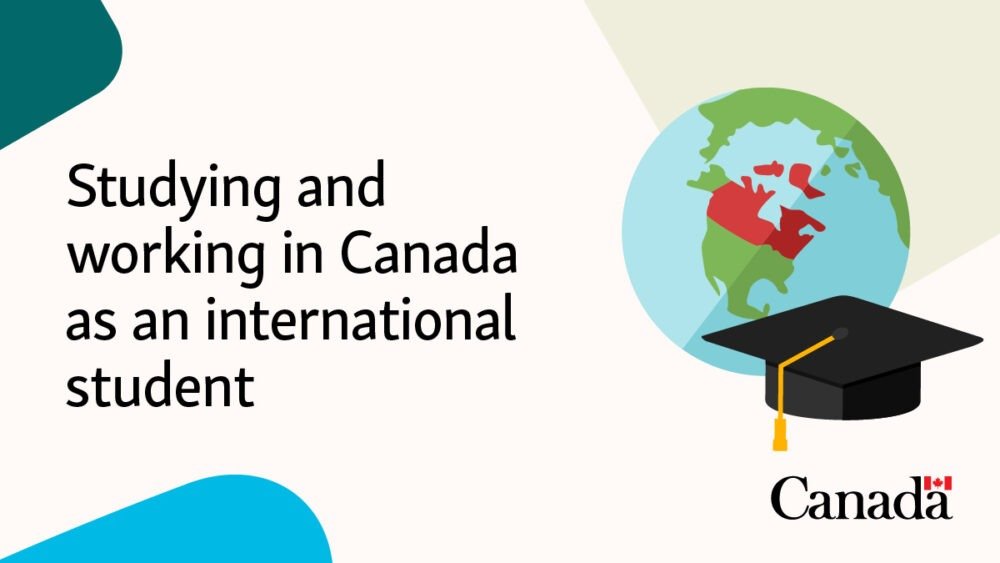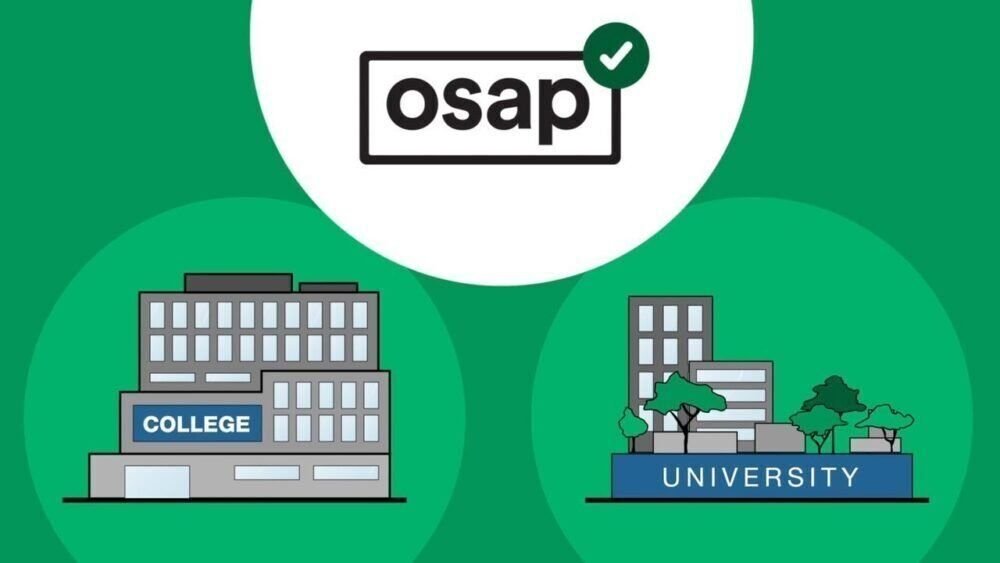
Canada is a global leader in education, attracting over 1 million international students in 2024 with its world-class institutions, affordable tuition, and vibrant multicultural environment. Whether you’re dreaming of studying computer science in Toronto, business in Vancouver, or arts in Montreal, Canada offers endless opportunities for academic and personal growth. This ultimate guide will walk you through everything you need to know about studying in Canada as an international student, from choosing a program to securing a study permit and exploring post-graduation pathways. Backed by the trusted EduCanada brand—a collaboration between the Council of Ministers of Education, Canada (CMEC) and Global Affairs Canada—this guide ensures you’re on the right path.
(Note: EduCanada is a protected trademark of the Government of Canada, used under a Master Licence Agreement. Unauthorized reproduction is prohibited.) Study in Canada
Ready to start your Canadian study journey? Let’s dive in and explore the steps, with links to detailed resources to help you succeed.
Why Study in Canada?
Canada’s appeal as a study destination is undeniable. Here’s why international students choose Canada:
-
World-Class Education: Canadian universities and colleges rank among the best globally, offering degrees recognized worldwide. Institutions like the University of Toronto, UBC, and McGill are renowned for excellence in fields like technology, healthcare, and business.
-
Affordable Tuition: Compared to the US or UK, Canada offers competitive tuition fees, averaging CAD 15,000–40,000 per year for international students, depending on the program.
-
Multicultural Environment: With a diverse population and welcoming culture, Canada feels like home for students from over 200 countries.
-
Work and Immigration Opportunities: Graduates from eligible programs can apply for a Post-Graduation Work Permit (PGWP), allowing them to work in Canada for up to 3 years. Many also pursue permanent residency through programs like Express Entry or Provincial Nominee Programs (PNP).
-
Safe and High-Quality Living: Canada consistently ranks among the safest countries, with vibrant student cities like Toronto, Vancouver, and Montreal.
Whether you’re aiming for a career in tech or a pathway to Canadian residency, studying in Canada sets you up for success. Want to know more? Check out our posts on Top 10 Reasons to Study in Canada for International Students and Best Programs for International Students in Canada.
Choosing the Right Program and Institution
Canada’s education system offers diverse options: universities for research-focused degrees, colleges for practical and career-oriented programs, and vocational schools for specialized training. To study in Canada, you must attend a Designated Learning Institution (DLI), a school approved by a provincial or territorial government to host international students. Here’s how to choose the right one:
-
Research Programs: Align your program with your career goals. Popular fields include computer science, engineering, business, and healthcare. Many DLIs offer co-op programs, blending classroom learning with paid work experience.
-
Check DLI Status: Use the official IRCC DLI list to confirm the institution’s DLI number. This is critical for study permit applications.
-
Consider Location: Cities like Toronto offer urban vibrancy, while smaller cities like Halifax provide affordability. Research living costs and campus culture.
-
Explore EduCanada: The EduCanada website lists trusted DLIs and programs, ensuring quality education. (EduCanada is a protected trademark of the Government of Canada.)
Need help narrowing your options? Read our guides on How to Choose the Best Canadian University or College for You and Top 5 Canadian Cities for International Students.
Application Process for International Students
Applying to a Canadian institution requires careful planning. Here’s a step-by-step guide:
-
Research and Shortlist DLIs: Use EduCanada or platforms like Ontario’s OUAC (universities) or OCAS (colleges) to explore programs. Compare admission requirements, such as GPA, language proficiency (e.g., IELTS/TOEFL), and prerequisites.
-
Prepare Documents: Gather transcripts, proof of English/French proficiency, a statement of purpose, and recommendation letters. Some programs may require portfolios or entrance exams.
-
Apply to the Institution: Submit applications directly via the school’s website or centralized platforms. Pay attention to deadlines, typically 6–12 months before the program starts.
-
Obtain a Letter of Acceptance (LOA): Once accepted, you’ll receive an LOA, a critical document for your study permit. Verify its authenticity, as IRCC requires DLIs to confirm LOAs through an online portal since December 2023 to prevent fraud.
-
Check for Fraud: The 2018–2019 scam involving fake LOAs for 700 Indian students highlights the need for vigilance. Contact the institution directly using official contact details to confirm your LOA.
For detailed tips, explore our posts on How to Verify Your Letter of Acceptance for a Canadian Study Permit and Common Mistakes to Avoid When Applying to Canadian Schools.
Applying for a Canadian Study Permit
A study permit is your ticket to studying in Canada for programs longer than 6 months. Here’s how to secure one:
-
Eligibility: You need an LOA from a DLI, proof of financial support (e.g., CAD 20,635/year for living expenses outside Quebec, plus tuition), a valid passport, and no criminal record.
-
Quebec-Specific Requirement: If studying in Quebec, obtain a Quebec Acceptance Certificate (CAQ) before applying for a study permit.
-
Application Process:
-
Gather documents: LOA, proof of funds (bank statements, sponsorship letters), passport, photos, and a Statement of Purpose (SOP) explaining your study plans.
-
Await processing (typically 4–12 weeks, depending on your country).
-
-
Tips for Success: Write a compelling SOP, ensure funds cover at least one year, and double-check that your LOA is from a DLI. If the LOA expires during processing, request an extension from the institution.
-
Recent Changes: As of November 2024, new PGWP language and program requirements may affect study permit planning. Check the IRCC website for updates.
Learn more in our guides on Step-by-Step Guide to Applying for a Canadian Study Permit and How to Write a Winning Statement of Purpose for Your Study Permit.
Financing Your Education
Studying in Canada is an investment, but careful planning makes it manageable. Here’s a breakdown:
-
Tuition Costs: International students pay CAD 15,000–40,000/year, depending on the program and institution. For example, engineering programs at top universities may cost more than college diplomas.
-
Living Expenses: Budget CAD 15,000–20,000/year for accommodation, food, and transport. Cities like Toronto are pricier than smaller centers like Winnipeg.
-
Scholarships and Aid: Many DLIs offer scholarships, such as the Vanier Canada Graduate Scholarships or institution-specific awards. Check EduCanada for options.
-
Part-Time Work: International students can work up to 20 hours/week off-campus during studies and full-time during breaks, earning CAD 15–25/hour on average.
-
Budgeting Tips: Share housing with roommates, cook at home, and use student discounts (e.g., public transit passes).
For more strategies, read our posts on Scholarships for International Students in Canada and How to Budget as an International Student in Canada.

Life as an International Student in Canada
Studying in Canada is more than academics—it’s a chance to grow personally and culturally. Here’s what to expect:
-
Cultural Adjustment: Canada’s diverse cities make integration easy, but you may face homesickness or language challenges. Most DLIs offer counseling and cultural clubs to help.
-
Housing Options: Choose on-campus residences (CAD 8,000–15,000/year), off-campus rentals (CAD 600–1,500/month), or homestays for a family-like experience.
-
Student Support: DLIs provide academic advising, career services, and language tutoring. Many also offer health insurance plans, mandatory for international students.
-
Work Opportunities: Part-time jobs in retail, hospitality, or campus roles help cover costs and build experience.
Explore student life further in our posts on A Day in the Life of an International Student in Canada and Finding Affordable Housing as a Student in Canada.
Post-Graduation Opportunities
Canada’s post-graduation pathways are a major draw for international students. Here’s what you can pursue:
-
Post-Graduation Work Permit (PGWP): Graduates from PGWP-eligible DLIs (check the IRCC list) can work in Canada for up to 3 years. Recent updates (November 2024) introduced stricter language and program requirements for PGWP eligibility.
-
Permanent Residency: PGWP work experience can lead to permanent residency through Express Entry (Canadian Experience Class) or Provincial Nominee Programs (PNP). For example, Ontario and British Columbia offer streams for international graduates.
-
Career Prospects: Canada’s strong economy offers opportunities in tech, healthcare, and finance, with companies like Shopify and RBC actively hiring graduates.
Dive deeper into these options with our posts on How to Apply for a Post-Graduation Work Permit in Canada and Pathways to Permanent Residency for International Students.
Conclusion
Studying in Canada as an international student opens doors to world-class education, cultural experiences, and career opportunities. By choosing a Designated Learning Institution, securing a study permit, and planning your finances, you can make your Canadian dream a reality. The EduCanada brand ensures you’re selecting trusted institutions, backed by the Government of Canada. (EduCanada is a protected trademark of the Government of Canada, used under a Master Licence Agreement. Unauthorized reproduction is prohibited.)
Ready to take the next step? Explore our linked guides for detailed advice, visit www.canada.ca for official resources, or share your questions in the comments below. If you need personalized guidance, consult a licensed immigration professional. Your Canadian adventure awaits!






